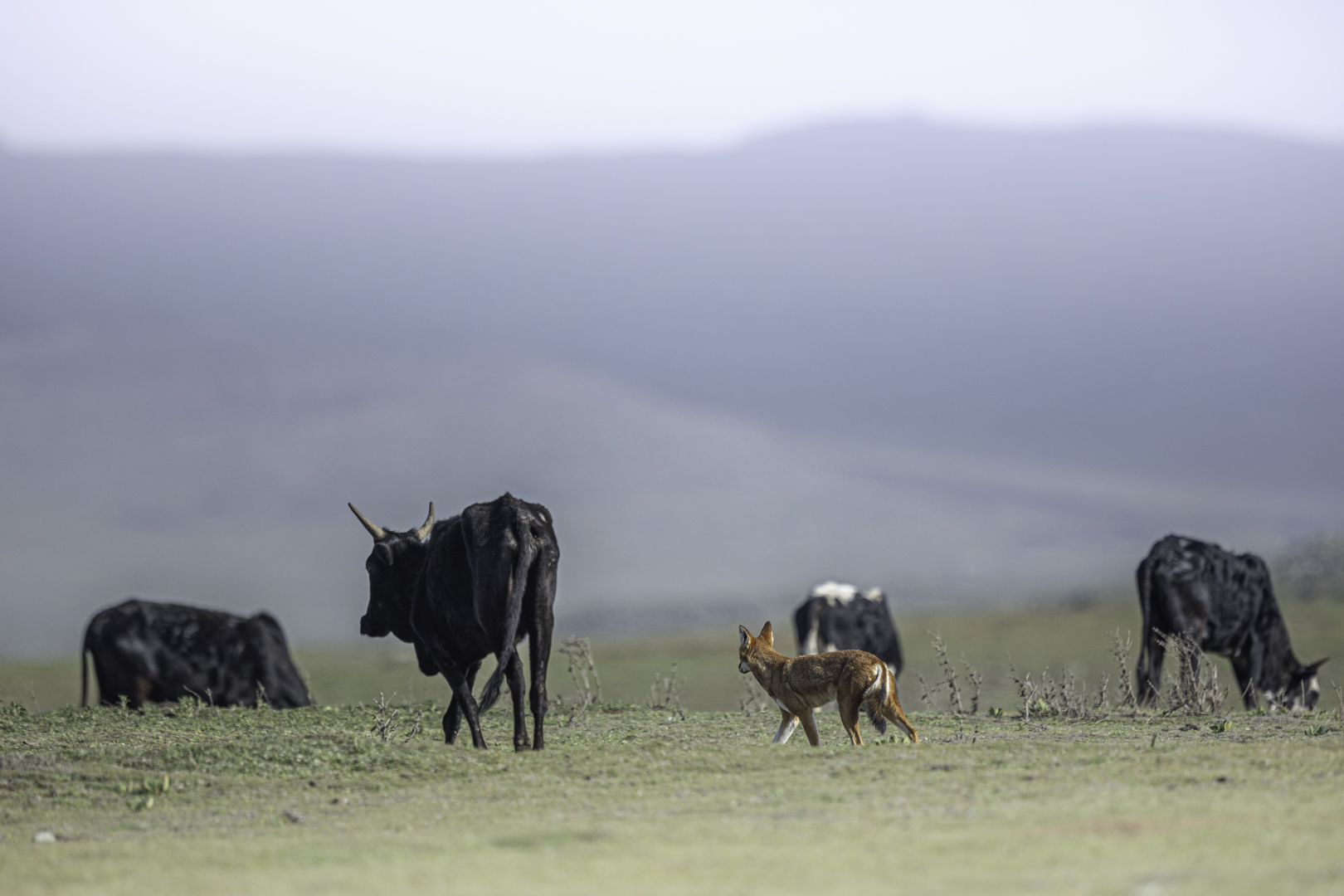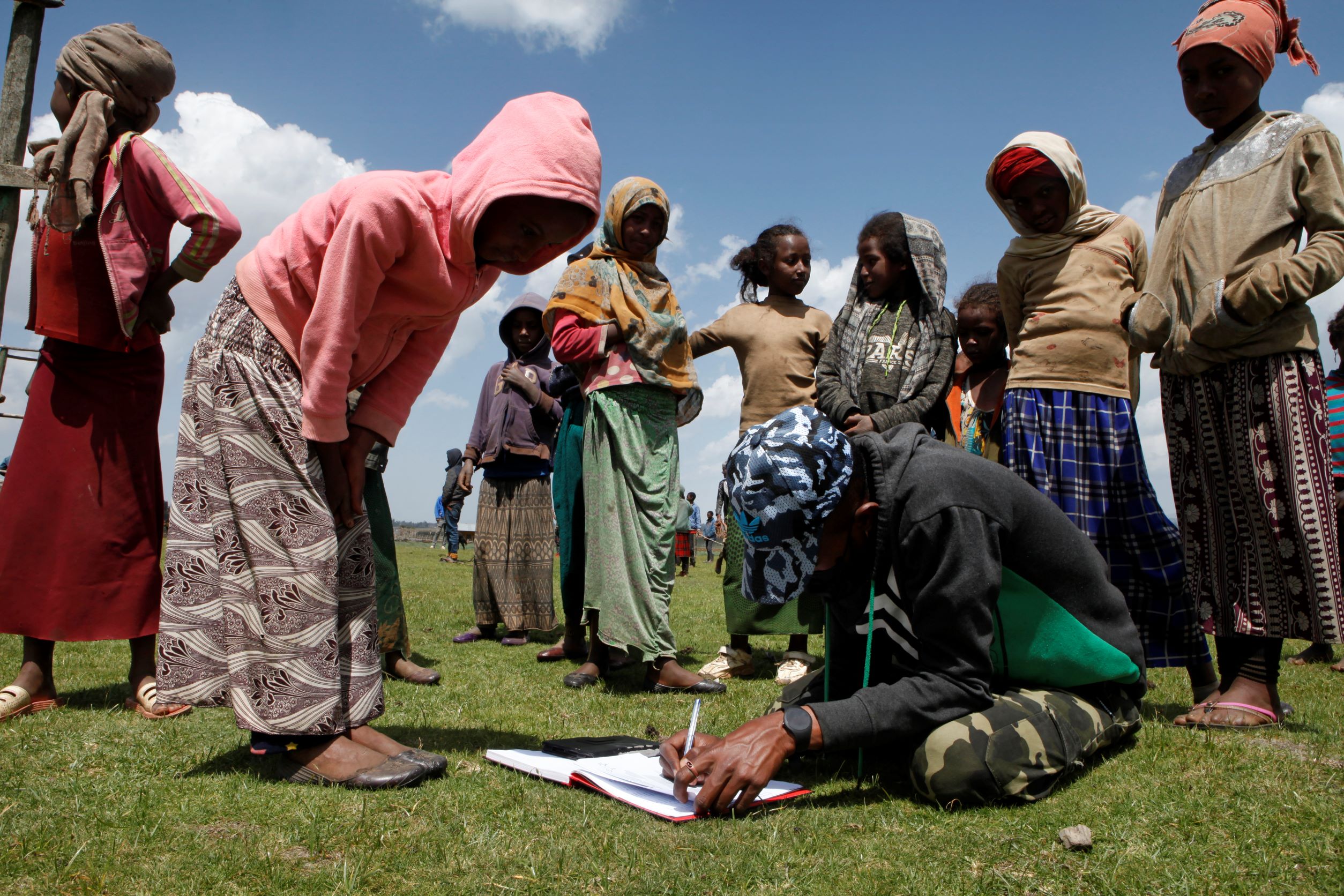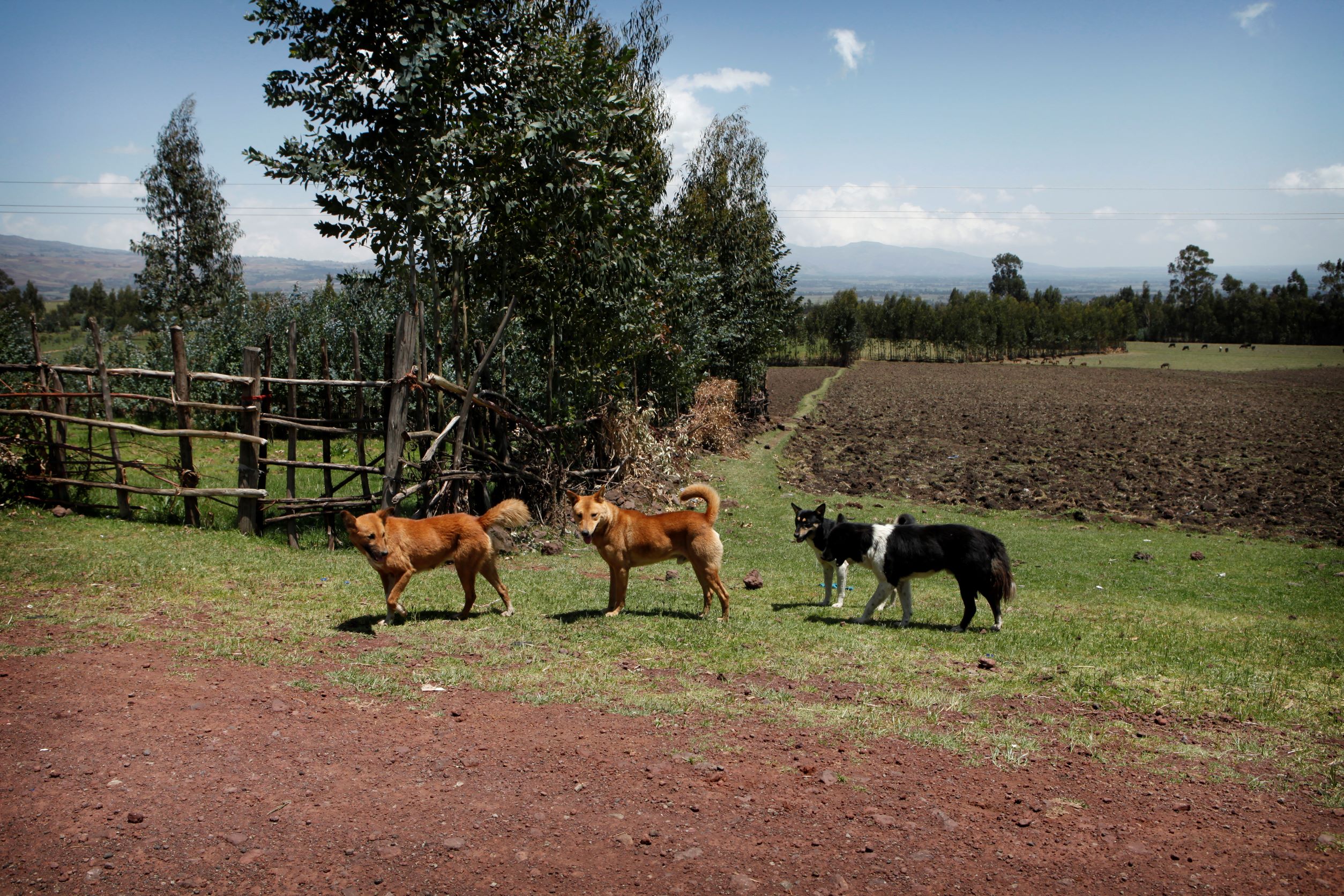

Health has been central to our work in Ethiopia for many years. In protecting Ethiopian wolves against diseases, we learn that success requires simultaneously addressing the health of wolves, of the local communities and their domestic animals, and of the mountain ecosystems that sustain them all.
This is known as the One Health approach, a holistic strategy that acknowledges the overlap and synergies between the health of humans, animals and the environment, and the importance of coordination action across sectors. One Health is a win-win solution that benefits both people and wildlife and which it is increasingly recognised as an essential conservation tool.
Today, rabies and canine distemper viruses are the main threat to the survival of Ethiopian wolves, and also pose a growing threat to African wild dogs and other endangered carnivores. Rabies is maintained within domestic dog populations – it infects and kills people and livestock, and frequently spills over to wildlife. Many dogs roam freely in the rural highlands, when they encounter wolves and can transmit diseases. With agriculture expanding up the mountains, and both encroachment into wild habitats and dog numbers increasing, the threat of disease is here to stay.

Ethiopian wolves are endemic to Ethiopia. They live in these high mountains and nowhere else, where they hunt the abundant rodents of the Afroalpine ecosystem. At odds with their solitary hunting habits, these wolves are remarkably social. They form close family groups of up to 18 wolves, in which the dominant pair sires a litter once a year and the subordinates assist with babysitting and feeding the pups. Because they are highly social and live at high density in small territories, diseases, when they arrive, spread like wildfire. An outbreak can halve a local population over a period of just 2 to 3 months.
At the heart of our work are the people who own livestock and dogs, and suffer themselves from the impacts of rabies. To a certain degree, Ethiopian wolves can coexist with people, but the exposure to dogs and their diseases poses a clear and present danger. We work with pastoral communities in the highlands and the towns and villages surrounding wolf habitat, raising awareness of diseases and bringing veterinary care to remote places. Vaccinating dogs helps control diseases in the reservoir population, with positive impacts on human health and local economies. Since 1996 we have vaccinated dogs living near wolves against rabies, and more recently against canine distemper, averaging 4,000 a year. In these communities, we have seen fewer cases of rabies in humans and livestock, and positive attitudes towards wolf conservation have grown considerably. Raising awareness of risks to people and animals is also crucial - we do this among school children, during community gatherings and with special events, but also house-by-house in the mountains, engaging in long conversations and sharing information materials. Today, people willingly bring dogs for vaccinations, the result of many years of awareness and education work.

To be effective, a vaccination programme has to achieve and maintain 70% coverage, a real challenge in a remote landscape with a high turnover in the dog population. Keeping records of the vaccinated dogs and dog demography allows us to understand the scale of the task and to adapt accordingly.
The success of disease control interventions rest on robust disease monitoring. This is done by a team of highly trained monitors, working on foot or horse-back, who closely observe many wolf packs. During outbreaks, they are the first to detect dead wolves, and swiftly conduct post-mortems and collect diagnostic samples, while a wider network also alerts us of outbreaks of rabies or distemper in dogs. When a rabies outbreak is confirmed, our emergency response is to take to the field and directly vaccinate wolves to contain the outbreak and save wolf lives. This involves capture and sedation and is a delicate, labour-intensive, but vital operation.
Oral vaccination may be the Holy Grail for Ethiopian wolf conservation. By consuming a meat bait with a vaccine sachet inside, wolves can auto-vaccinate! Oral vaccination is cheaper, less traumatic and therefore can be done preventively. After many years of political lobbying and research, preventive vaccination campaigns are now rolling across all wolf populations. Building population immunity and resilience is so important and the wolves cannot wait.
Wolf vaccinations have been a cornerstone in our fight to prevent extinctions, but are just a single component of our growing One Health toolbox. Rabies remains a threat to Ethiopia’s wolves and its people, and so our fight continues to protect communities and save the Ethiopian wolf.
